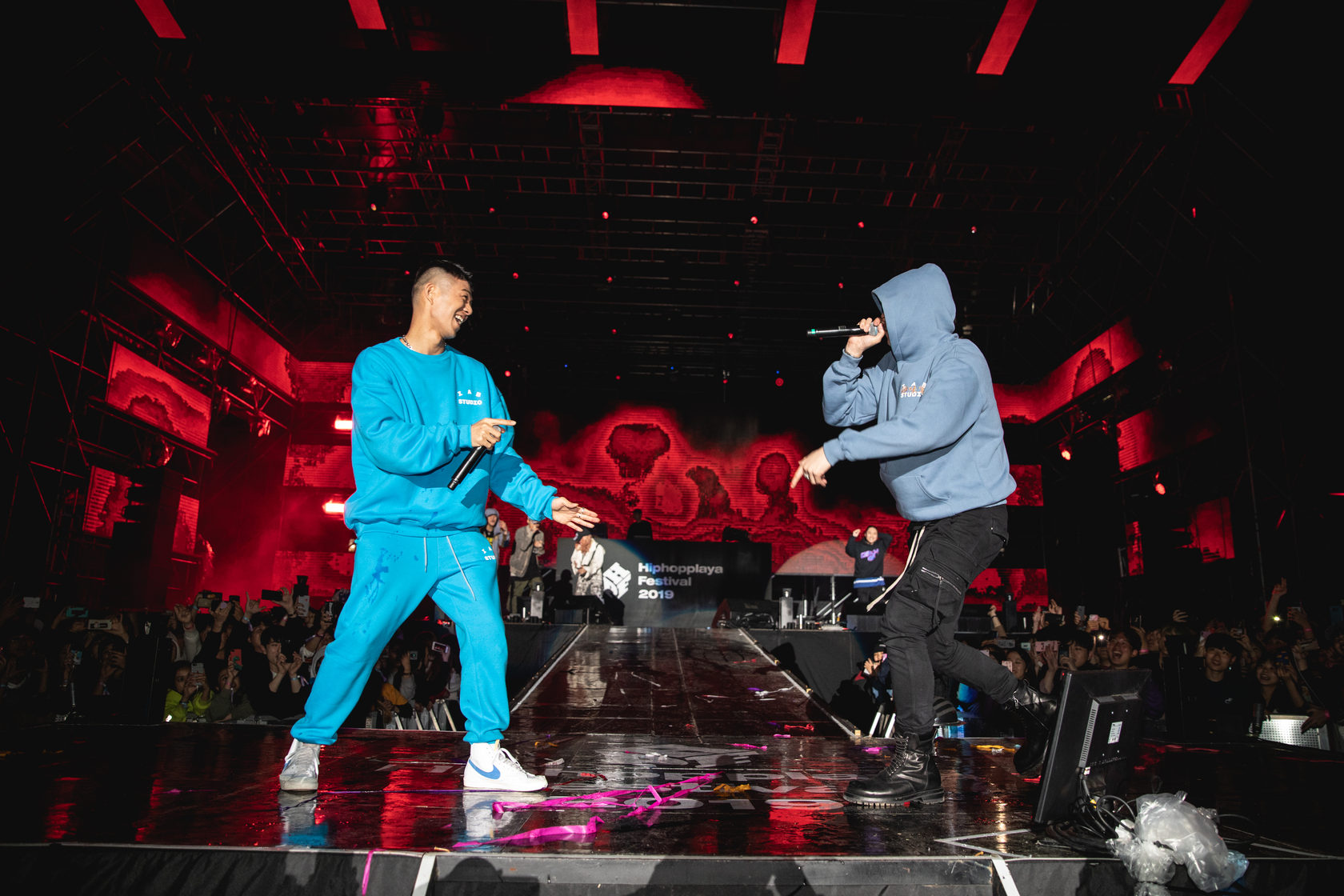This piece was submitted from a member of our enthusiastic community of readers. If you’re interested in sharing your opinion on any cultural, political or personal topic, create an account here and check out our how-to post to learn more.
As a native New Yorker and resident of Queens, I could recite Jay Z’s “Hovi Baby” word for word with all credit going to my father. So being a part of the small demographic of foreigners in attendance at The HipHopPlaya Festival, who was American, from New York City and African American I couldn’t help but think in amazement at how far hip hop has traveled. Apparently, it came way before I did in Seoul, South Korea.
Hip hop originated in the Bronx of New York City from African American and Latino American youth during the early 1970s. The birth of hip hop was the renaissance of art emerging from neighborhood block parties that would become known later as “the culture”. Hip hop is a collective body of work that consists of DJing, breakdancing, rap, graffiti art, fashion, and beatboxing. Through various outlets, hip hop challenged the institutional and systematic racism in America that targeted African Americans communities. Furthermore, the advancement of technology and mass media catapulted hip hop into the global sphere giving it a new identity. The voice of the oppressed and a platform to anyone good enough to lyrically claim it.
The fusion of hip hop and Korean culture was potent in performances, art, and style over the weekend at HipHopPlaya. Festival goers took their best candid’s using the hashtag #hiphopplayafestival with hopes of appearing on the large Instagram styled monitor. Korean Streetwear brands like Thisisneverthat, I Am Not A Human Being and Stigma sold all day attracting street style enthusiasts. Live performances consistently had packed crowds and graffiti artists Royyaldog and Jayflow collaborated on a mural paying tribute to Ice Cube that fans could periodically observe being finished until late in the night.
Under the hot sun in Nanji Gangang Park, the movement of Korean hip hop (K-hip-hop) was alive and ironically just a fifteen-minute train ride away from the neighborhood that helped it stand on its own two feet. The appearance of hip hop in Korea started in the dance clubs of Itaewon during the 1980s. The club Moon Night contributed significantly to the movement, hosting competitions for dancers ready to show off their skill and make a name for themselves. Korean pop stars of the 90s like Deux and CLON got their start at Moon Night along with many others who paved the way for future artists. In sum, breakdancing set off hip hop culture in Korea while making room for its many other facets.
Besides knowing the discography of DPR Live, (a South Korean rapper and singer who I found by chance on Soundcloud two years prior to seeing him perform live over the weekend) I had little knowledge of K-hip-hop. The genre performed mostly in Korean with some English naturally raises the question of how non-Korean fans overcome the language barrier. The answer is simple: Google.
The hypocrisy of claiming a language barrier in regards to Asian media when Latin hits like “Despacito” and “Mi Gente” climbed the charts over this past year reveals the subtle prejudice the West has of Asian media. Slowly but surely, Western media has started to pay attention. Korean acts like BTS, dominated the Billboard charts with their latest album Map of the Soul: Persona, Blackpink performed at Coachella being the first Asian act to do so, and along with BTS, EXO and GOT7 were nominated for Top Social Artist of The Year at Billboard this year. Rapper School Boy Q, even jokingly commented on BTS’s domination on the charts as his label advised him about the groups' international presence.
K music gained the attention of international fans to explore its many genres making K-Pop and K-hip-hop the most sought after. So, it comes as no surprise when it is challenged for its authenticity. The phrase “cultural appropriation” is found across social media when the fusion of hip-hop and Korean culture exists. The debate of what real hip-hop is never fails to appear when the artist isn’t of the African Diaspora. I argue that real hip hop is impossible to identify since anyone can make it. What I found to be real about The HipHopPlaya festival was the exchange of energy between artist and fans. The ripple of excitement when fans pressed forward for headliners like Zico, Crush and Dean. I wasn’t bored but amazed by the rhythmic flow while my mind pondered on the most obvious. What are the qualifiers to be a real hip hop artist?
The mural of Ice Cube created over the weekend was a gentle reminder of how hip hop went from criminal to commercial. N.W. A’s protest anthem “Fuck Tha Police” is a political time stamp of race relations in America. Drawing the attention from the LAPD police, police unions, the FBI and the Secret Service N.W.A narrated the reality of blackness in America. Today hip hop follows its roots in storytelling but commercially finds its success in its packaging. Without a doubt, I believe the topic deserves a deeper look and during my time in Korea, I intend to explore it.
